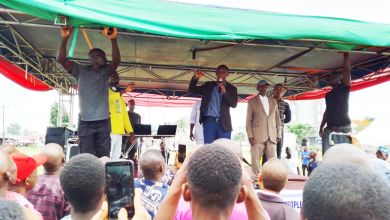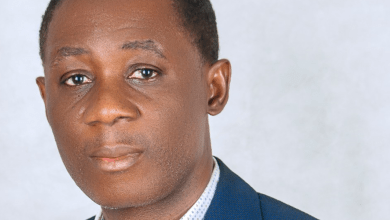Shell and The Future of The Ogoni – by Fegalo Nsuke
The 1995 executions of 9 Ogoni leaders and rights advocates are well known just as the events that led to the painful executions and the role the Nigerian state played to ensure that she consumed her own citizens even in the face of global condemnations.
The executions of 1995 had exposed the level of Nigeria’s deterioration and the desperation of corrupt leadership to further the policies which significantly denigrates the poor and wretched communities of the oil bearing Niger Delta.
Nearly seventeen years after the executions, new evidence point to the Shell Petroleum Development Company as masterminds of the Giokoo killings which eventually led to the executions of the 9 Ogonis on November 10, 1995. All that has become a sad and very painful history of the Ogoni people. A history that challenges the present leadership to further work for a secure future for Ogoni people and to frustrate Shell’s desperation to return to active production in Ogoni.
After drilling in Ogoni for over 30 years and generating an estimated revenue in excess of USD30billion, Ogoni has been left with nothing. Perhaps the only beneficiaries of the Ogoni quagmire are the Shell Petroleum Development Company and the Nigerian ruling class.
Despite Shell’s shameful records in Ogoni, the company still has the impetus to negotiate a return to productive activities while Ogoni still remains without portable water and electricity, dilapidated schools and a shocking recent discovery that there exist an Ogoni community of Teenama in Khana local government area without a primary school.
Shell in Ogoni has demonstrated an inconceivable lack of corporate morality. The company’s records in Ogoniland since 1958 is a frightening revelation of a racist policy perpetrated by exploiting an environment of corruption and ethnic polarity.
Shell lacks the morality to discuss any possible return to Ogoniland. While it is important to have Ogoni resources exploited for the benefit of Ogoni people, Shell is not and should not be an option in that discuss.
Unfortunately, progress in getting an alternative to Shell had been deadlocked because our country depend on this blood-stained revenue from oil and will not do much to bring decency to the oil industry despite overwhelming evidence of corporate irresponsibility.
The only hope of the Ogoni people then lie in international pressure on the Nigerian government to respect the rights of her citizens. The West had been, and remains the most outspoken in this regard. The West remains the biggest market for Nigeria’s oil and patronized the products of this dehumanization. The West therefore has a responsibility to put pressure on the Nigerian government to respect the rights of the Ogoni people to decent living. It is my conviction that being Nigeria’s biggest market over the years, the West cannot shy away from this responsibility for she implicitly has benefited from the process.
The West has an obligation to continuously condemn the delay in cleaning up Ogoniland as recommended by UNEP. The West also is expected to sustain the pressure on Nigeria to respect the rights of the Ogoni people and indeed the oil bearing communities of the Niger Delta by abolishing all laws that does not respect their humanity. No economic benefit should override the health and safety of the citizens. The West shoild equally be wary of Nigeria’s investment incentives which further worsens the misery of the Ogoni people.
On the home front, Ogoni people need to exploit and sustain all collaborative efforts that can create awareness on the dangers of Shell’s continuous interest in Ogoniland. The Ogoni must sustain local resistance against Shell through the organized leadership of the Movement for the Survival of the Ogoni People.
Written by Fegalo Nsuke.





